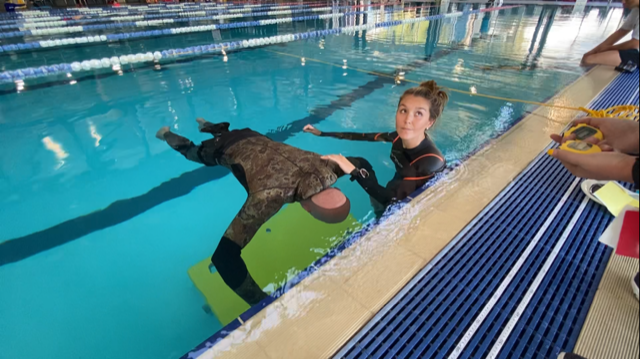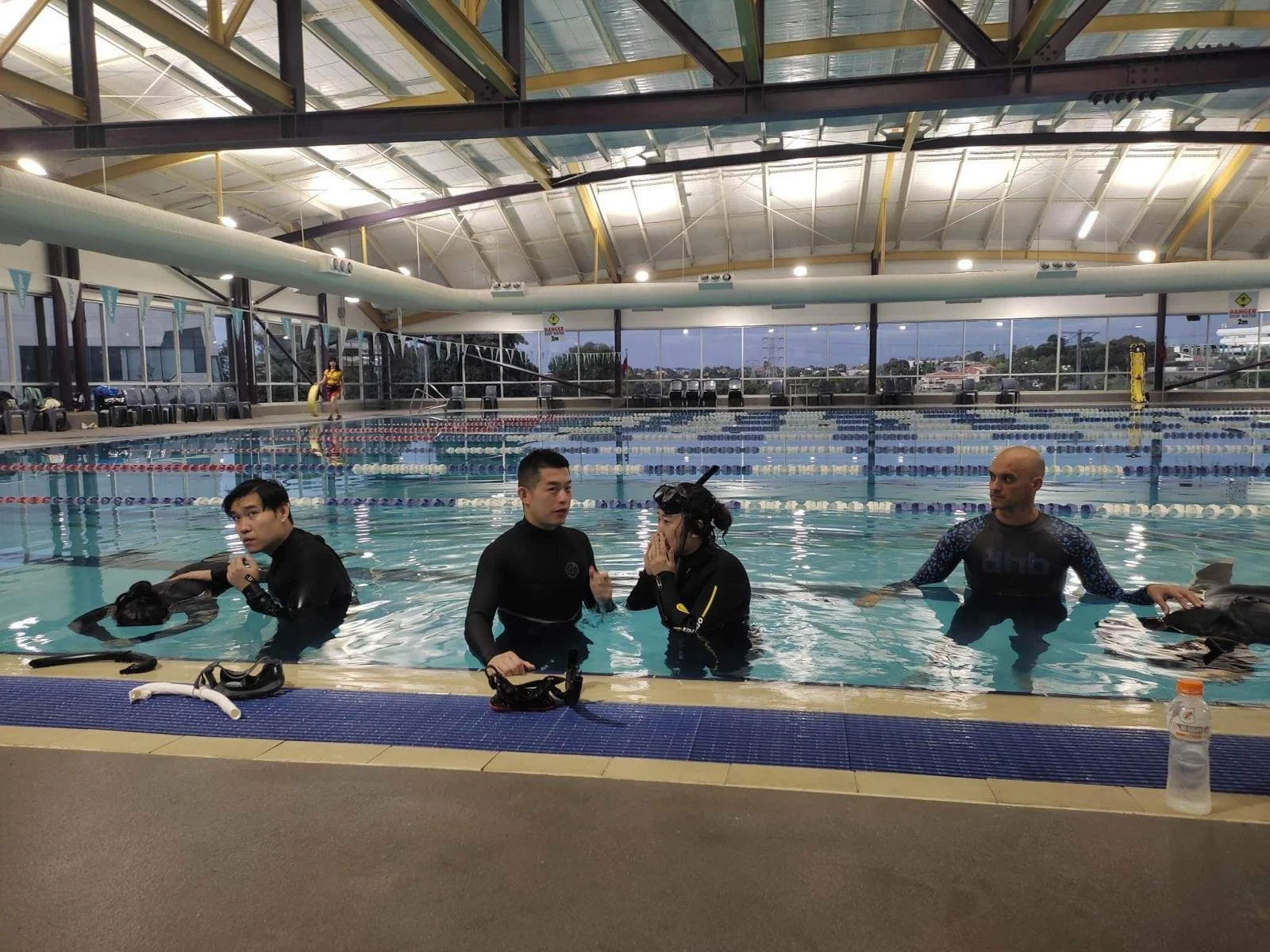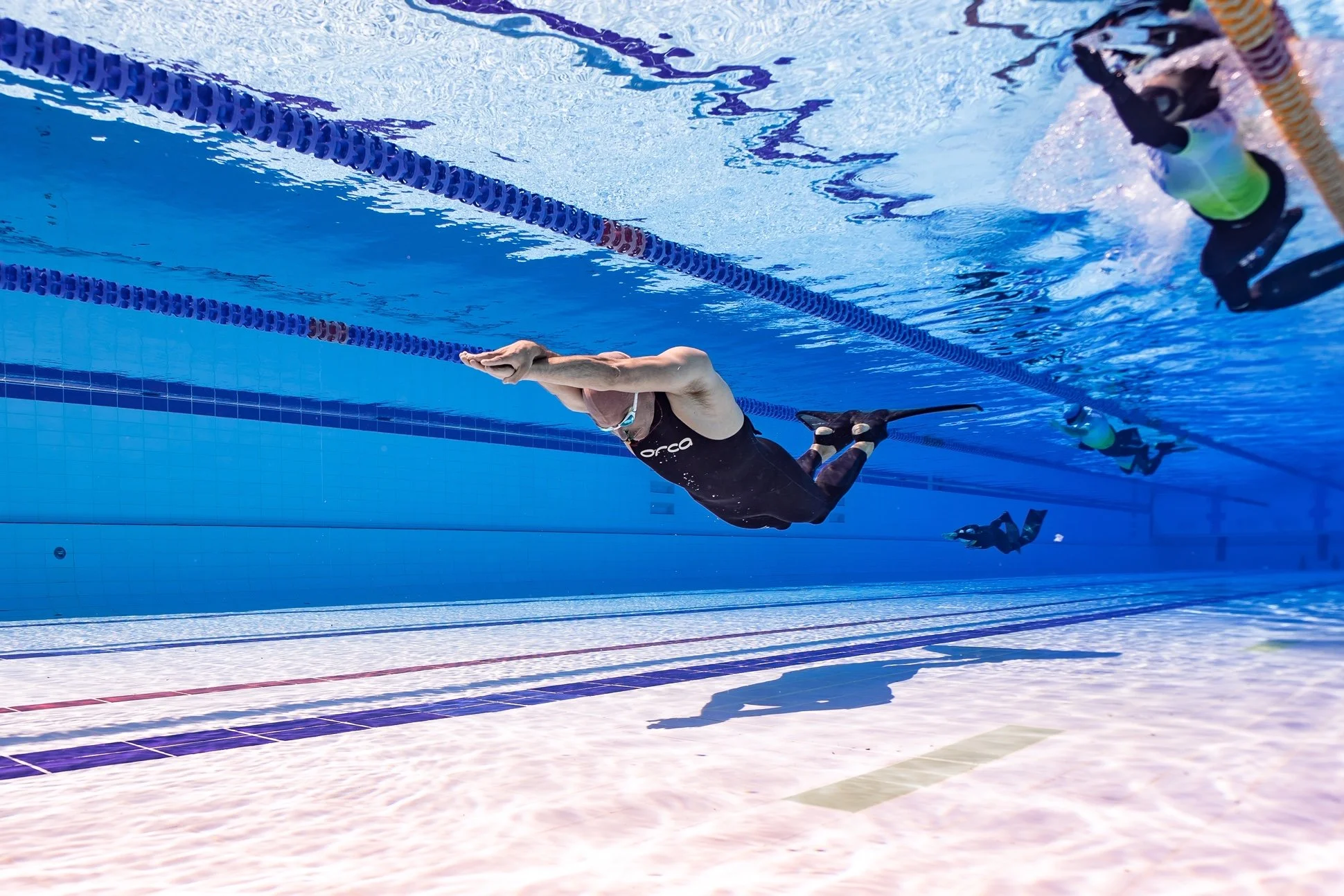Unrealistic or totally reasonable?
18th of March 2023
I recently asked a friend I was training to increase their intensity by 10% for the last half of their high intensity workout. “That’s unrealistic” they replied thinking they were already going at 99%. We were doing the set together so we did it anyway. Turns out it was a totally reasonable increase and well within their capabilities. I have pondered on this since. How often do we set limitations on our abilities due to a desire to stay comfortable or the lack of someone else to show us otherwise?
With any new activity, learning starts with embracing a level of discomfort. This is especially true with freediving as holding your breath is in contrast to many of the physiological mechanisms that have helped to keep you alive thus far. Fundamental in learning to freedive is getting comfortable with discomfort, which takes the form of developing ones tolerance for carbon dioxide (CO2). Rising CO2 is the bodies primary trigger to breathe when we are holding our breath. It is rare to find a beginner student that does not find it challenging to sit in the discomfort of rising carbon dioxide. This trigger is operating on a very powerful level and has been working constantly throughout our lives to keep us alive and breathing. James Nestor, in his book ‘Breathe’ talks about a study with patients who had no amygdala and as a result did not sense any fear. Imagine going through life not having any sense of fear when a snake walks under your foot on a track or a car comes screeching to a halt right in front of you. Researchers were studying these people to try to understand if they could produce a fear response despite their lack of functioning amygdala. Having failed to produce a sense of fear in the patients through common methods researchers decided to try administering one mouth-full of carbon dioxide to see how they would respond. The researchers explained to the patients before hand that there was no physiological risk of them suffocating. Based on the outcomes of the previous tests the researchers did not believe they would be successful in producing a fear response. Within moments of being administered a mouth-full of CO2 the patients were gasping for air and claiming they were suffocating. Many years later these people, still unable to feel fear in other aspects of their life, continued to be scared of taking a full breath of co2 again.
When teaching people to freedive we start by helping students to build awareness of their breathing, their mind and their physical and emotional relationship to rising CO2. To explore these sensations we need to get a little uncomfortable. Starting from a low base most people are inspired by the rapid progression they achieve. Most people quickly get comfortable with rising levels of CO2 and enjoy the confidence they have developed. At some point they can do the new activity with competence and that is satisfying and, more importantly, they feel comfortable doing it. Especially if those around them are at a similar level it is easy to settle here as they “fit in” and can do things well enough to participate. The progression from this point requires a lot more time and a desire to get uncomfortable again and again. This is the point where many settle for comfort after scratching the surface of their potential. There is nothing wrong with settling at this point. For many of us this might be more than sufficient to achieve our goals and enjoyment but what I know to be true is that our true potential is far beyond this point. I have reflected on this with my experience with freediving.
I started training pool freediving when I joined the Melbourne freedivers club back in 2014. I had already been spearfishing and experimenting with holding my breath at home for about 8 years. I had developed beliefs during this time about my own personal capabilities and I was reasonably satisfied with them. They were nothing that impressive but I always had fun when I went diving and I often came back with a feed for dinner. I suppose looking back I knew I could improve a little but I also thought the progression I was capable of was not that far from the point I was starting at. I realise now how limiting these beliefs were.
At Melbourne Freedivers Club back in 2014 there was no divers at the club diving further than 75m underwater in the pool. I quickly achieved this distance but this became a new ceiling for me with only minor increases over the next couple of years. In 2017 I started training with some friends separate from the club and one of them, Ant Williams, was regularly doing more than double what I was in his training sessions. Prior to meeting Ant I was convinced that he must be built different and gifted with superior genes. It is easy to think like this about people we don’t know. Once I started training with Ant I realised that whilst he was an incredibly talented freediver he was physically probably not that different to me. What was unique to Ant was he had an incredible work ethic, a bulletproof mindset and had trained consistently for many years. As a result his body and mind had adapted to allow him to do the things that for many people seemed unhuman. Upon realising this the ceiling I had placed on my own abilities started to feel higher. I started to progress. What I believed unrealistic a short time ago started to become a totally reasonable expectation if I trained consistently.
In 2017 I was encouraged by a few friends to join them for some pool competitions. I was reluctant at first but then realised the goal of having something specific to train for would help me focus and hopefully progress. We trained regularly with Ant and seeing him do these big swims helped me to believe in myself. In the weeks prior to the competition my beliefs in my own abilities grew and I was excited to explore my potential in the competition. At my first multi-day competition I swam 168m in DYN after only doing just over 100m in training. I felt as if the ceiling on my beliefs had been lifted and I was inspired and eager to have the opportunity to train more.
I have developed a real love for training in the years since. Training, more than any result, is what I love the most. Having the goal of testing my abilities at the next competition inspires me to train consistently which has helped to transform my body and mind to achieve things I previously thought unrealistic. By training consistently you develop a relationship with your body and mind and slowly start to become aware of more of the subtleties of the way you react to different situations, both in the pool, at depth and in life more generally. During the last several years I have noticed that I would normalise many of the stresses and pains in my life as something that was just part of life or ageing, probably largely due to a desire to avoid the discomfort of addressing them. A little bit of discomfort is often necessary to ensure we can be more comfortable in the long run. The confidence and the relationship I have developed with my body and mind through my freedive training has encouraged me to address the challenges presented in life and learn why they are here. By cultivating greater mind-body awareness in my freedive training I have seen consistent improvements both in and out of the water and many of the things that emotionally or physically challenged me previously have dissolved away. It all starts with not shying away from discomfort. In my reality, embracing discomfort has actually made me more comfortable on the whole.
It does remarkable things for your confidence when you start to believe it is totally reasonable that you could do something you thought unrealistic just a short time ago. We see this regularly on our beginner freediving courses when people who think they can only hold their breath for 30-60 seconds on their first session hold their breath for several minutes. Learning incrementally, session by session, month by month, that the body is capable of more than you had previously believed possible is fascinating and such a huge part of why I love freediving and coaching other freedivers and athletes. My freediving journey has transformed my perspective of human potential both in and out of the water. To experience it for yourself find an instructor you trust and click with and start your own journey with a freediving course or some coaching.



